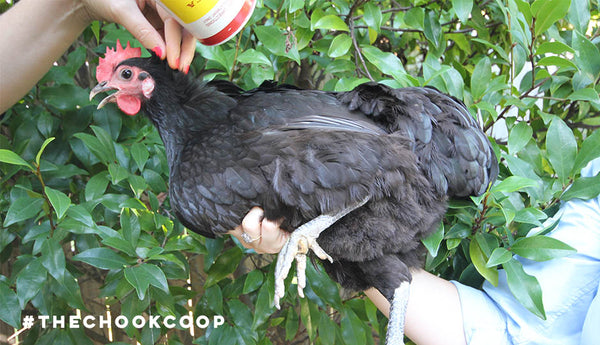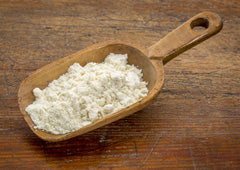Worming your chickens naturally is a fairly straightforward process so long as you understand what you’re doing and why you’re doing it. Most artificial worming medications won’t do any harm to your flock, but many Chicken Ladies prefer to use natural preventative treatments for their girls. To best naturally treat your chooks for worms it’s imperative that you understand what worms actually are, how your chickens get them, the best ways to prevent an outbreak in your flock, as well as knowing how to look after chooks that have been infected. This no nonsense, easy to read guide, will give you the full scoop on all things worm related, so that you and your girls can relax in complete comfort.
What are worms?
Worms are essentially parasites that move into your chickens digestive system, setup shop and cause trouble! They sap chickens of nutrients as well as causing your girls grave discomfort. There are of course many different types of worms, like hair worms, round worms, gizzard worms, tape worm, all of which are disturbingly unique in their own way, but they all have one thing in common… they are trouble makers!
How can worms harm my flock?
It isn’t difficult to see why worms are a serious chicken concern. Extreme cases of worms can lead to malnourishment, infection, internal hemorrhaging and even death! There is no need to despair however so long as you are proactive in preventing and treating your flock for worms. Worms are very common and there are a wide variety of treatments, both natural and artificial, which will return your chickens to their clucking best in no time.
How do chickens get worms?
It is very easy for your flock to catch worms and even the more diligent Chicken Ladies can’t always protect their feathery ladies from becoming infected. Worms are primarily spread through poultry droppings, and as we all know, chickens aren’t always modest about where they do their business. Here are the two key ways in which chickens can become infected with worms…
Direct life-cycle: Worms are like cockroaches, even when you think you’ve killed them all, they keep crawling back by the thousands! When an infected chicken does their business they are inadvertently spreading hundreds and thousands of tiny worms that can literally lay dormant on the grass for years. Naturally chickens like to peck and poke their heads around the backyard and it is very easy for them to accidentally ingest a small army of worms looking for a host body to lay siege upon - it’s pretty scary stuff!
Indirect life cycle: Worms are clever and crafty little creatures that know how to get what they want! Other small critters, like slugs, earthworms and snails, feed upon the worms that might be lurking deep in the grass of your backyard. Good news right? Wrong! Chickens love to eat snails, earthworms and slugs and as a result they become infected with the worms their prey have eaten - as the saying goes, “you’re not just what you eat, you are what you eat, eats”.
Now, it may seem as though worms are inevitable, and in many ways they are, but there is still so much you can do to prevent an outbreak.
How can you help prevent worms in your backyard?
Preventing worms is easy so long as you integrate it into your regular chicken routine. Here are the top 3 ways you can help prevent an outbreak of worms...
-
Change your animal bedding regularly: Infected chicken droppings contain thousand of little worms looking for a new set of intestines to call their home. So, it’s only common sense that you should replenish their bedding regularly, especially if one of your chickens is battling with worms. Hemp bedding is highly absorbent and natural pest repellent, making it a perfect first defense against worms. Read more about the benefits of hemp bedding here...
-
Avoid wet and muddy conditions: Worms thrive in swampy conditions! A muddy chicken run is like a New Year’s Eve party for these parasites and believe me they can party all night long. If you’re chicken coop or run is looking like a muddy quagmire then make sure you get your chickens to dry ground, otherwise you might end up with more worms than you can handle!
-
Keep your lawn mowed: “Why should we mow the lawn? I don’t care what the neighbours think” We’ve all said this at one point. But, a freshly mowed lawn exposes the dormant worms to strong UV rays, especially in Australia, and believe it or not, this will actually put an end to lose pesky parasites.

As you can see, there are some very basic things that you can do to help defend your girls against worms. This being said, though prevention is the best strategy, worms are tough creatures to defeat and sometimes your girls will unfortunately become infected.
What are the signs that your chickens have worms?
It is sometimes difficult to unequivocally diagnose a chicken with worms, however there are plenty of telltale signs that will help you come to a reasonably confident diagnosis. Stick your beak into the top five signs and symptoms of worms in backyard chickens here…
-
Weight loss: If your chickens are rapidly losing weight, it may be a sign that there are heaps of worms in their stomach, devouring their feed before they get the chance!
-
Increased feed consumption: Ironically, chickens with worms will lose weight but eat more feed. This is because their body is malnourished as the worms are eating all of the food in their stomach, which means they try to eat more to compensate, but that only makes the worms even more powerful!
-
Pale yolks: Chickens with worms will lay eggs with pale and solemn yolks.
-
Diarrhoea: That’s right, chickens with worms can often develop nasty, smelly and bubbly diarrhoea - those poor things! Do keep an eye on your chickens droppings, as diarrhoea is always a sign of a sick chicken.
-
Worms in the chicken manure: Worms look like white little hairs that can sometimes be found in a chicken’s droppings. It may not be the most fun, but it is important for your girls that you check out their dirty business and see if you can spot any wiggly worms.
If you ever want to get an official diagnosis, you can always take a manure sample to your local poultry specialist, who will be able to run a few tests to count the worm presence inside the stool sample provided. If you believe your ladies have worms the good news is there are many natural remedies for treating worms that also have a whole heap of health benefits for your flock.
What are some natural preventative treatments for worms?
There are so many natural preventative worming treatments you can integrate into your chickens diet and lifestyle. By including the following ingredients into your chickens diet on a daily basis you’ll be able to help protect your cute little ladies from all kinds of parasites, like mites and lice and not just those pesky worms. Here are our top 3 natural preventative treatments for worms…

-
Diatomaceous Earth: In an egg shell, diatomaceous earth is essentially fossilized algae that is highly abrasive and will help exterminate worms inside your chickens stomach when ingested. It is also a very dense source of essential minerals that will help keep your girls lively and healthy, so they can party all night long inside your coop, without having to worry about embarrassing worms. To find out more about diatomaceous earth, just click here.
-
Apple Cider Vinegar: This is a popular solution for a wide range of chicken ailments. Apple cider vinegar helps boost your chickens immune system in a number of ways, as well as detoxifying their body. To put it simply, apple cider vinegar is like giving your chickens a multivitamin. For more information about apple cider vinegar, just click here.
-
Garlic: Some Chicken Ladies are a little skittish of garlic because for many years there have been rumors circulating that it changes the flavour of your girls eggs. In reality, garlic is a fantastic medicinal treat you can include in your flocks diet on a semi-regular basis. And, you guessed it, garlic also helps kill any nasty worms that may be living it up inside your chickens stomach. To find out the truth about garlic, just click here.
By simply adding a small amount of these ingredients into your flocks feed or water everyday, your chickens immune systems and stomachs will become fortified against all those unpleasant trouble making worms that are trying to sneak their way in.
What to do if your chickens are seriously infected with worms?
Sometimes, in spite of all your efforts, your chickens will simply get worms. It's nothing to feel ashamed about, it's something that just happens every now and then. The good news is that worms are fairly easy to treat. At Backyard Chicken Coops we recommend Wormout Gel to treat your chickens infested with worms. Wormout Gel contains two key chemicals, Oxfendazole and Praziquantel, which help effectively eradicate worms from your chicken's digestive system. All it takes is 2 ml of Wormout Gel to every 160 ml of drinking water to evict any worms from your chickens stomachs. It is common practice among many chickens lovers to use a product like Wormout Gel as a preventative treatment against worms every six m0nths, but whether you'd prefer to use natural treatments, like apple cider vinegar and diatomaceous earth, is really up to you. Point being, it's essential that you help protect and treat your chickens for worms in one way or another.
What do I do once I have treated my chickens for worms using Wormout Gel?
Once you've treated your chickens for worms using Wormout Gel it's important that you avoid eating their eggs for at least 14 days. This will allow enough time for your chickens to flush any residual worming chemicals out of their system. During this time your chickens may need an extra nutritional boost in their diet with products like apple cider vinegar and diatomaceous earth. If you are using Wormout Gel as a preventative treatment it's always a smart idea to treat them during the non-laying seasons, as to avoid missing out on any delicious eggs.
In all seriousness, all animal lovers who care for chickens will probably experience an outbreak of worms at one time or another. This type of situation is easily managed so long as you remember all different ways, natural or synthetic, that you can prevent and eradicate these wiggly little warriors. Changing their bedding on a regular basis is a great strategy and it’s never been easier than with our Taj Mahal, Penthouse or Mansion coops, all of which come equipped with easy to remove cleaning trays. From there you'll always be able to rely upon natural treatments, like apple cider vinegar and diatomaceous earth, for everyday prevention. If your worms become seriously infected with worms it might be best to use Wormout Gel, which is reliable, effective and easy to use. Ultimately, so long as you know your enemy, defending your chickens against will be as easy collecting eggs from the nesting box.As chicken keepers, we like to think that we are doing the best we can for our girls, however, there is often more we can do to prevent health issues. I highly recommend the Ultimate Chicken Online Health Course to all my readers! It is written by our friends over at Chickenpedia. They have compiled everything you need to keep healthy chickens through the seasons (which is more than you think!) with a great set of check-lists and downloads to keep.


















